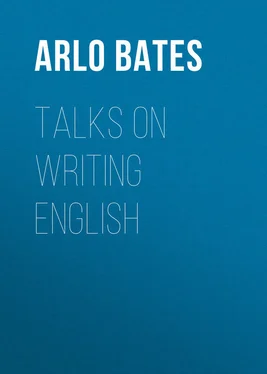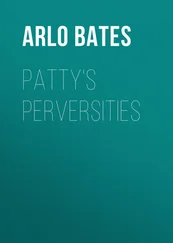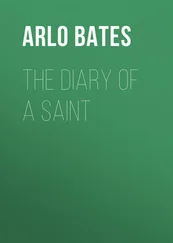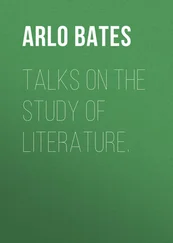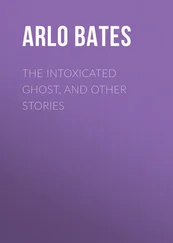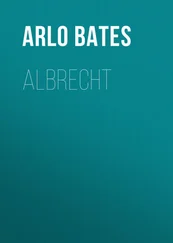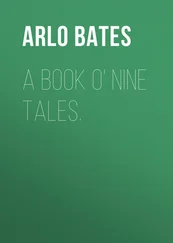Arlo Bates - Talks on Writing English
Здесь есть возможность читать онлайн «Arlo Bates - Talks on Writing English» — ознакомительный отрывок электронной книги совершенно бесплатно, а после прочтения отрывка купить полную версию. В некоторых случаях можно слушать аудио, скачать через торрент в формате fb2 и присутствует краткое содержание. Жанр: foreign_antique, foreign_prose, на английском языке. Описание произведения, (предисловие) а так же отзывы посетителей доступны на портале библиотеки ЛибКат.
- Название:Talks on Writing English
- Автор:
- Жанр:
- Год:неизвестен
- ISBN:нет данных
- Рейтинг книги:5 / 5. Голосов: 1
-
Избранное:Добавить в избранное
- Отзывы:
-
Ваша оценка:
- 100
- 1
- 2
- 3
- 4
- 5
Talks on Writing English: краткое содержание, описание и аннотация
Предлагаем к чтению аннотацию, описание, краткое содержание или предисловие (зависит от того, что написал сам автор книги «Talks on Writing English»). Если вы не нашли необходимую информацию о книге — напишите в комментариях, мы постараемся отыскать её.
Talks on Writing English — читать онлайн ознакомительный отрывок
Ниже представлен текст книги, разбитый по страницам. Система сохранения места последней прочитанной страницы, позволяет с удобством читать онлайн бесплатно книгу «Talks on Writing English», без необходимости каждый раз заново искать на чём Вы остановились. Поставьте закладку, и сможете в любой момент перейти на страницу, на которой закончили чтение.
Интервал:
Закладка:
There is a crude popular idea that the refinements of literary art are wasted, at any rate upon the general reader. So many books succeed, at least temporarily, which can make no slightest pretense to any grace of manner, and which have not even the merit of reasonable accuracy, that the student is apt to feel that these things are superfluous.
Of course the ordinary reader does not perceive delicate shades of expression, fine distinctions of phrase, or subtile beauties of style. Very likely he does not pause to consider whether a style is good or bad; and certainly he would be unable to analyze its merits if he attempted this. It does not follow that these graces do not touch him. It is by means of them that deep and lasting effects are produced. Susceptibility to artistic beauty is not necessarily conscious. Frankly, it is to be admitted that for the instant, evanescent, lurid success of sensational popularity it is not necessary to write good English. Books outside of the furthest stretch of charity in workmanship and style have, each in its day, the dazzling, however transient, success of a Roman candle or a rocket. In far too many newspapers one may see how flippant pertness and vulgar sharpness can dispense with the smallest shred of good style, may ignore syntax, scorn accuracy, and outrage decency itself.
Once for all it must be allowed that whoever seeks this sort of success need not waste his time in the study of English composition. The author of the latest scandalous novel never experiences the necessity of any exhaustive acquaintance with rhetoric, or even of knowing much more than the outside of the English grammar. The young women who are employed by enterprising journals to scramble around the world in the briefest possible time with a hand-satchel for luggage are apt to be as little encumbered with syntax as with trunks. The purveyors of gossip to society papers are not in the least obliged to know the language in which they attempt to convey their precious information. If they can discover that Mrs. Cholmondely-Jones is at the Sea View House, their readers are not troubled at the declaration that this leader of fashion is “stopping at the hotel for a week;” – confusingly impossible as such a feat may appear.
All this has been said over and over, and I repeat it here simply by way of reminder that there is no claim that popular success is not to be won without literary merit; any more than it could be claimed on the other hand that popular success is insured by it. It is certain that no permanent literary work can be accomplished without the mastery of a good English style; and it is equally certain that command of written language is of the highest value and use. Sensational books make their way not because of their crudities of style and their inaccuracies, but in spite of them. If to the qualities which have given them vogue had been added literary merit, they might have reached to permanent in place of temporary success. Certainly if a writer desires to impress, to persuade, to move, to arouse; if he have a report to write which he hopes may be adopted, a theory to state which he is in earnest to have received; a history to relate that he would have believed; an appeal that he longs to have heeded, a creation of the imagination by which he aims to touch the emotions of his fellow-men, he cannot too carefully cultivate the art of communicating it. In any of these cases mastery of literary technique is as essential to success as is air to breathing or light to seeing.
II
METHODS OF STUDY
The question remains: How is skill in composition to be gained? The general principle is as simple as the details of the craft are complicated. The way to write is to write. Perhaps the most exact image of the process is that of piano-playing. Just as one acquires skill in the use of the piano by innumerable exercises and continual practice, so one attains to mastery in written language only by writing and writing and writing. It is necessary to compose and recompose; to write all sorts of things, to prune them, recast them, polish them; to elaborate and to simplify; to weigh each word and phrase; and when all is done to destroy the result as ruthlessly as we would destroy anything else which has become rubbish by outliving its usefulness.
This last point needs to be insisted upon. Personal vanity and that interest in self which is so naturally and so universally human, work constantly to persuade the beginner that his poorest trials are worth preservation. In the case of the pianist, the sound of the five-finger exercise dies on the air, and there is luckily an end of it. The player cannot gather it up and send it to a magazine. He cannot even without great risk of encountering personal violence impose it upon the friend whom he has invited to dine. With the writer it is unhappily different. His first verses he sends cheerfully and a little condescendingly to a magazine. His second he distributes on privately printed slips to his friends, – and any acquaintance will serve as a friend in the distribution of privately printed poems! His third effort is apt to go to some overworked man of letters, accompanied by a note delicately hinting that the inclosure is better than anything which the recipient has done, and requesting him to have it published at once in one of the leading magazines.
It is a thousand pities that the work of writers who are learning their art is not written in ink fading over night, or which would at least vanish as soon as the manuscript had undergone revision. The next best thing is for the would-be author to accustom himself to phrasing thoughts in his mind without setting them down upon paper at all. This habit is of great value from the constant training that it gives, and it is of value also because it takes its place as the study of form for the sake of form; the effort to attain technical excellence unhampered by any consideration of producing compositions permanent in themselves.
The best technical training is that which is entirely disassociated from any idea that permanent work is being done. No one can get on very well or very far in English composition who is not able patiently and faithfully to do a great deal of work simply for the sake of learning how to do it, entirely realizing that the thing produced is of no value when it is done. It is as absurd to preserve or to attempt to publish these crude experiments as it would be to practice the five-finger exercises in public, and to attempt to persuade music-lovers to pay to come and hear them. Every editor knows what need there is of saying this. Each mail carries to the office of every magazine scores of manuscript which are nothing but the crude exercises produced in more or less unintelligent struggles with the art of composition. The soul of the editor faints within him, while on the other hand the misguided, sensitive, self-conscious writer is smitten to the heart when his or her exercise is sent back with a printed card declining it with a hollow mockery of thanks. It is ludicrously pathetic; and I dwell upon it a little because in my time I have been foolish enough to offend in this manner; because as an editor I suffered enough from this cause to square the account beyond the cavil of the most exacting fate; and because in the course of my literary life I have seen so much of this sort of thing that I realize how general the experience is. It would be of less moment were it not for the depth of despair into which would-be authors are plunged by the return of these exercises. There is no despair like the despair of youth, and it makes my heart tingle now to recall the utter anguish with which I have received rejected early manuscripts – which should never have been sent to a publisher. Would to heaven that there were some one eloquent enough to persuade the world once and for all that literature is as surely a profession which must be learned as is law or medicine. No delicate woman or sensitive man, thrown suddenly upon her or his own resources, turns to law or medicine, expecting to gain a livelihood by practicing these professions uninstructed; yet this would be hardly less logical than to expect to make a way in literature without long preparation and study. Nobody seems to believe this. It is probably disbelieved now, as I say it; and examples of persons who have succeeded in writing with no apparent training come to mind at once. It would be idle to retort to objections of this sort that quacks have succeeded in all professions; and I must content myself with insisting that whether what I have been saying is believed or not, it is true, and the proofs are heart-sickeningly familiar to every man of literary experience at all extended.
Читать дальшеИнтервал:
Закладка:
Похожие книги на «Talks on Writing English»
Представляем Вашему вниманию похожие книги на «Talks on Writing English» списком для выбора. Мы отобрали схожую по названию и смыслу литературу в надежде предоставить читателям больше вариантов отыскать новые, интересные, ещё непрочитанные произведения.
Обсуждение, отзывы о книге «Talks on Writing English» и просто собственные мнения читателей. Оставьте ваши комментарии, напишите, что Вы думаете о произведении, его смысле или главных героях. Укажите что конкретно понравилось, а что нет, и почему Вы так считаете.
